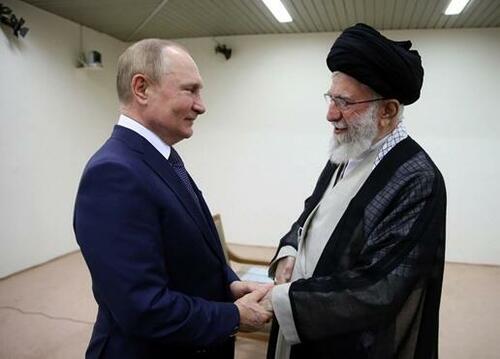
Russian President Vladimir Putin has reportedly expressed support for a nuclear agreement that would prohibit Iran from enriching uranium. This development was communicated to US President Donald Trump, according to officials who spoke with the news outlet Axios. However, Iran’s semi-official news agency, Tasnim, has denied these claims, quoting an “informed source” who stated that no such message was conveyed by Putin.
Historically, Russia has advocated for Iran’s right to enrich uranium, making Putin’s backing of a “zero-enrichment” plan a potentially significant shift in Russia’s stance. Such an agreement could involve external powers, including Russia, providing the enriched uranium required for Iran’s nuclear energy operations. The backdrop to this shift includes a recent 12-day conflict between Iran and Israel, which concluded with US airstrikes targeting Iranian nuclear facilities.
Following these events, President Trump has declared that a critical condition for any future negotiations would be ensuring that Iran ceases all uranium enrichment activities. Sources from Europe and Israel have indicated that Moscow is now encouraging Tehran to accept this “zero-enrichment” condition as a pathway to dialogue with the United States.
A senior Israeli official was quoted stating, “We know that this is what Putin told the Iranians.” Despite this, Iran’s leadership continues to refute these claims, as indicated by state media reports. The broader framework of negotiations proposed by Washington reportedly demands that Iran abandon any efforts toward highly enriched uranium in exchange for sanctions relief.
According to a European official, “Putin supports the no-enrichment option. He encouraged the Iranians to move in this direction to facilitate dialogue with the U.S. But Tehran refused even to consider this possibility.”
Iranian authorities have also been pressing for clarity on the timeline and method of sanctions relief from Washington. Distrust towards the US remains high, particularly due to the history of fluctuating commitments exemplified by the withdrawal from the Joint Comprehensive Plan of Action (JCPOA) in March 2018. Iranian leaders view the issue of uranium enrichment not only as a technical matter but also as a matter of national sovereignty.
While Tehran is likely to reject the notion of entirely halting enrichment, there may be room for negotiation regarding limits on enrichment levels and the establishment of a monitoring regime. This is especially pertinent given that Iran has recently expelled inspectors from the International Atomic Energy Agency (IAEA), complicating the situation further.
As the geopolitical landscape continues to evolve, the implications of Putin’s reported support for a zero-enrichment policy could reshape the dialogue surrounding Iran’s nuclear ambitions and its interactions with both Russia and the United States. The coming weeks are likely to reveal how Tehran responds to this new diplomatic pressure and what it means for the already complex nexus of international relations in the region.





